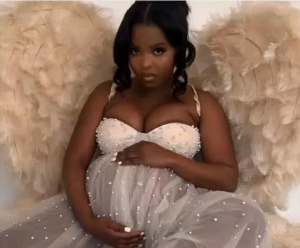A defining trait of human beings seem to be the desire to plan for the future, to want to secure or guarantee one’s life choices in the long run.
Even social schemes such as pensions, njangis, “country meetings,” all have the element of security and planning for the future. Even children are seen as guarantees of the future: “Truly children are a gift from the Lord, a blessing, the fruit of the womb.
Indeed the children of youth are like arrows in the hand of a warrior. O the happiness of the man who has filled his quiver with these arrows! He will have no cause for shame when he disputes with his foes in the gateway” (Ps 127:3-5).
The beauty about all these social groupings and cultural and even biblical expressions is that they reflect the human conviction formulated in such African sayings: one hand cannot tie a bundle! Many hands do light work! And others.
However, it is also the case that human beings can allow this desire to secure the future to a point of a nervous breakdown. This desire can move to the level of fear. When not managed, this fear has led and continues to lead many to seek and inquire about what the future holds for them, in a practice which Catholic tradition calls divination. At other instances, people have taken to divination in order to forestall an apparent evil, perhaps after the death of a loved one, considered to have occurred under mysterious circumstances.
Situating this practice of divination in its treatment of the first commandment, the Catechism of the Catholic Church has this exhortation to Catholics: “All forms of divination are to be rejected: recourse to Satan or demons, conjuring up the dead or other practices falsely supposed to ‘unveil’ the future.
Consulting horoscopes, astrology, palm reading, interpretation of omens and lots, the phenomena of clairvoyance, and recourse to mediums all conceal a desire for power over time, history, and, in the last analysis, other human beings, as well as a wish to conciliate hidden powers.
They contradict the honour, respect, and loving fear that we owe to God alone” (CCC, 2116). This text gives a succinct and profound explanation of what divination is all about. The context is also meaningful.
To place divination as a sin against the first commandment invites the Catholic to examine the quality of his or her internal orientation to the claim made by God in revealing himself as the Lord! In revelation, God reveals that he is the source of all that is, not in some general abstract sense, but in that he knows me, wills me, and wants my good. I am not some accidental product of evolution.
I am known and loved. My life is a creative gift from God, and how I live that life is a gift I make to God. Christian revelation tells me that the gift of my life does not end here. That after this earthly life is over, I will live with God forever. Christian revelation tells me also that it takes a certain kind of way of living this life in order to be able to live with God forever.
Precisely because of this larger picture, I am invited to life a different kind of life in this world, in preparation for the next. Time is short, eternity long. What does this different kind of life, this utter submission mean, and how does this relate and challenge the practice of divination? Why is divination theologically incompatible with what it means to be a Catholic?
The answer could be simple and direct: because it goes against the invitation of faith, which is the human response to God: “No one can please God without faith” (Hebrews 11:6). Faith calls me to place my life in the hands of God. Faith is total. Faith is ongoing and persevering.
In living out the invitation of faith, the Christian can experience a darkness of faith. In Thomistic terms, the Christian can be attracted away from the Creator to the creature, from the gift of faith in God to the absoluteness of persons and things in this world.
The Christian can even go away from the trust and the hope that faith proposes. The Christian, out of fear, can think and feel that God is too weak to protect him or her, especially when faced with the crushing mystery of death and evil. Could this feeling of God’s weakness and powerlessness help explain why many African Catholics go to diviners for information and protection when faced with tragic circumstances?
The darkness of faith, it must be emphasized, is nothing new in Christendom. Even when a Catholic lapses into divination and other forms of sorcery, the response is not despair and exclusion. The Christian is called to rediscover that not even the death of a loved one has the final say in what it means to be Christian.
When faced with the darkness of divination and sorcery, the sure, steady and healthy path is to once againre-propose the beauty of the faith in its whole range: a rediscovery of the beauty and life-giving message of the gospel of Jesus Christ; a rediscovery of the presence of Jesus in the gift of the Eucharist; a rediscovery of the closeness, support and presence of the Blessed Virgin Mary in forms such as the Rosary and other Marian Novenas; a rediscovery of fasting and mortification; a rediscovery of the supportive presence of our Christian brothers and sisters, that I am not believing alone, but I am with others, the I and the WE of the faith; the ancient practice of retreats and recollections, and other spiritual experiences that foster spiritual rebirth.
At the root of the option for sorcery and divination is therefore a crisis of faith, and the profound and meaningful response is a re-proposal and recommitment to faith, a re-proposal of the beauty and life of Jesus Christ.
In the final analysis, the most important invitation after a relapse into divination and sorcery is the example of the Prodigal Son: “Yes, I shall arise, and return to my Father” (Luke 15:18) – Christian conversion is the anti-dote to the fear that leads to the recourse to divination and sorcery.
It is an invitation that invites me to the better life of placing my life and all its challenges in the hands of God, trusting that everything will finally work out for the good of those who love God.
It is about rediscovering that healing love of God as the decisive path of my new life in Christ Jesus, a life whose present and future is all in God’s wonderful plan. Hence, I need not allow the gift of my life to be destroyed by a fear of the future. God knows me. God loves me. God wants my good. My future is in God’s hands.
Opinions of Monday, 13 October 2014
Auteur: Agbaw-Ebai














